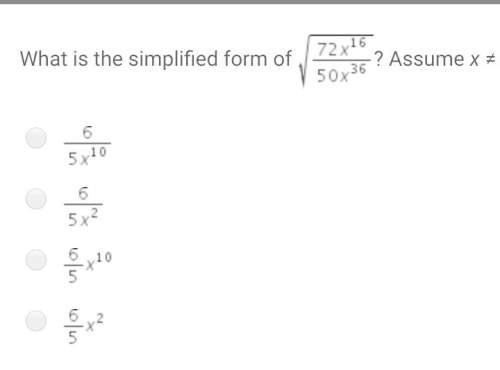1. Are the functions f, g and h given below linearly independent?
f(x) = e^3x + cos(7x), g(x)...

Mathematics, 17.02.2020 17:05 dianereyes7475
1. Are the functions f, g and h given below linearly independent?
f(x) = e^3x + cos(7x), g(x) = e^3x − cos(7x), h(x) = cos(7x).
2. If they are independent, enter all zeroes. If they are not linearly independent, find a nontrivial solution to the equation below. Be sure you can justify your answer.
………...(e^3x−cos(7x)) + ……………….(e^3x+cos(7x)) + …………..(cos(7x))=0.

Answers: 2


Another question on Mathematics

Mathematics, 21.06.2019 18:30
Thales was an ancient philosopher familiar with similar triangles. one story about him says that he found the height of a pyramid by measuring its shadow and his own shadow at the same time. if the person is 5-ft tall, what is the height of the pyramid in the drawing?
Answers: 3

Mathematics, 21.06.2019 22:30
Which answer goes into the box? (90° clockwise rotation, 90° counter clockwise rotation, translation, or glide reflection)
Answers: 2


Mathematics, 22.06.2019 01:30
Which represents the number of times all outcomes less than a given outcome occur? cumulative frequency relative frequency frequency cumulative relative frequency
Answers: 3
You know the right answer?
Questions

Mathematics, 17.07.2021 01:00

History, 17.07.2021 01:00




Mathematics, 17.07.2021 01:00




Mathematics, 17.07.2021 01:00


Mathematics, 17.07.2021 01:00











